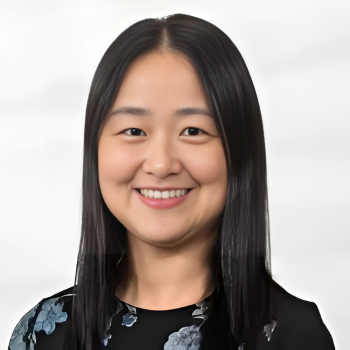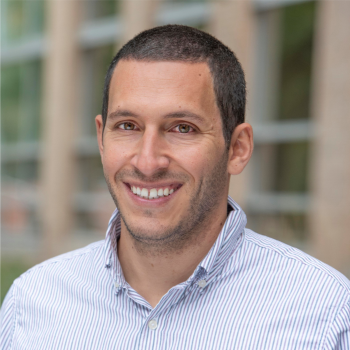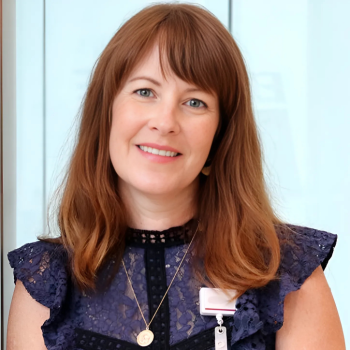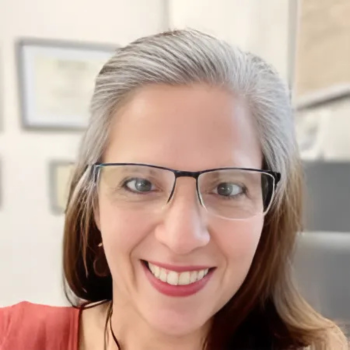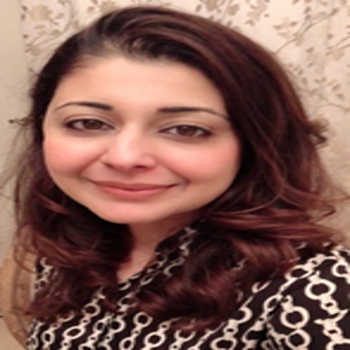Cultural Diversity Committee
In recognition of the increased need for the autism field to incorporate global perspectives and issues of cultural diversity in scientific research on autism, the purpose of the International Society for Autism Research (INSAR) Cultural Diversity Committee
is to provide a forum for professional development, information sharing, and collaborative activities among researchers and clinicians interested in racial/ethnic/cultural/socioeconomic diversity in autism. To achieve this goal, activities
of the INSAR Cultural Diversity Committee may include, but are not limited to:
- Increasing membership diversity for INSAR as a whole
- Fostering scientific career development for those from groups who have historically been under-represented in the autism research community
- Promoting cultural diversity issues as a regular part of the scientific program at the INSAR Annual Meeting
- Promoting the inclusion and consideration of issues of diversity in scientific autism research
- At the INSAR Annual Meetings, increasing comfort and feeling of belonging for people visiting from less-represented countries, especially those who are coming on the international stipends.
LATEST NEWS FROM THE CULTURAL DIVERSITY COMMITTEE
» C-CAP Cultural Diversity Initiative
The INSAR Cultural Diversity Committee introduced a new initiative at INSAR 2021! The Cultural Diversity Career Advancement Program (C-CAP) aims to facilitate the career development of individuals primarily from LMIC
and historically underrepresented groups from the United States who are interested in a career involving ASD research.
The goal of the Mentoring Initiative is to provide mentorship for individuals at all stages of their
training/careers, including those not yet in the field. Researchers at any stage of their career (early, mid, late) who believe they can benefit from the program may participate. The program launched at the INSAR 2021 Virtual Annual
Meeting, the recording of the event launch can be viewed here.
Cultural Diversity Committee Activities
Pre-conference Workshop
Pre-Conference Cultural Diversity Workshop: The INSAR Cultural Diversity Committee hosts a pre-conference workshop for the INSAR Annual Meeting. The Committee invites researchers to present their work focused on culturally
diverse and underserved communities.
Cultural Diversity Meet & Greet
Launched in 2015, the Cultural Diversity Committee has held happy hour receptions at the INSAR Annual Meetings to provide a venue to meet and socialize in an informal setting prior to the start of the meetings.
Networking Luncheon
The networking luncheons have been held since the inception of the Cultural Diversity committee in 2011. These luncheons have provided INSAR attendees with opportunities to meet and learn about work conducted around the
world related to autism.
Research Award
The Cultural Diversity Achievement Award aims to recognize and support investigators who conduct community-based or community partnered research that leaves a lasting impact on under-served and under-researched communities.
Watch the INSAR 2020 Cultural Diversity Committee Webinar to learn about the experience of the 2019 Interns and their Mentors.
Watch Now
Cultural Diversity committee history
The members of this committee assist in organizing / leading all of the activities at the annual INSAR conference and other activities throughout the year. In addition to Committee Members, we have many individuals with an interest
in Cultural Diversity that support and participate in activities throughout the year.
The Cultural Diversity Committee worked with the INSAR Board in preparing the June 26, 2020 INSAR Statement on Discrimination and
the Black Lives Matter Movement.
View statements here: INSAR's Public Statement on Discrimination and the Black Lives Matter Movement
Cultural Diversity Committee
Shoba S. Meera, Ph.D., India
Chair
Read Bio
Chongying Wang, Ph.D, China
Chair Elect
Read Bio
Jonathan Safer, Ph.D., USA
Secretary
Read Bio
Amy Esler, Ph.D., USA
C-CAP Officer
Read Bio
Close
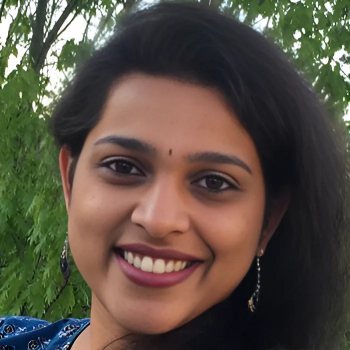
Shoba S. Meera, Ph.D.
Shoba S. Meera, Ph.D., is a practicing Speech-Language Pathologist and an Associate Professor in the Department of Speech Pathology and Audiology at the National Institute of Mental Health and Neurosciences (NIMHANS) in Bangalore, India.
She is passionate about clinical work and is part of a multidisciplinary team that works with autistic children and their families. She has had an excellent research career so far, with several significant grants and two major fellowships:
the Fulbright Nehru Postdoctoral Research Fellowship and the India Alliance DBT Wellcome Trust Early Career Fellowship in Clinical and Public Health. Funding from the latter fellowship has helped her establish her lab, the Infant-Toddler
Language Development and Intervention Lab (LiL’). Research in her lab focuses on the potential benefits of a caregiver-mediated early intervention called LiL’ STEPS for infant-toddlers at an elevated likelihood for autism. The lab
also explores various methods for the remote delivery of intervention, early caregiver speech input and language development, gesture development, and bilingual language development.
Close
Chongying Wang, Ph.D.
Chongying Wang, DPhil, BCBA-D, is the Founding Director of the Autism Research Center and Professor of Clinical Psychology at Nankai University in China. She obtained her doctorate in experimental psychology from the University of Oxford,
UK, and was a Fulbright Scholar at Stanford University, USA, and a visiting scholar at the Olga Tennison Autism Research Center (OTARC) at La Trobe University, Melbourne, Australia. Her research focuses on early identification, social-cognitive
development, and implementing evidence-based interventions for people with autism. She received the INSAR Cultural Diversity Research Award in 2021. Dr. Wang has also served as the INSAR Global Senior Leader for China since 2000 and
for Western Pacific Region since 2024.
Close
Jonathan Safer, Ph.D.
Jonathan Safer-Lichtenstein is an Assistant Professor at the University of Colorado, Anschutz Medical Campus and licensed bilingual psychologist at Children’s Hospital Colorado. He has spent the past 10 years in working with children with
autism, ADHD, and other neurodevelopmental conditions. His clinical and research interests include increasing access to intervention and assessment services for low-income families (including specifically Spanish-speaking families)
and executive functioning intervention.
Close
Amy Esler, Ph.D., LP
Amy Esler, Professor, Department of Pediatrics is a licensed psychologist and researcher at the Masonic Institute for the Developing Brain at the University of Minnesota. She completed her PhD in school psychology from the University of
Minnesota. Her clinical interests include diagnosis and characterization of autism and related diagnoses and care and support of individuals with profound autism, fragile X, and other rare genetic conditions. Her research focuses on
effective interventions for aggression and self-injury, improving equitable access to care, and measurement of behaviors and characteristics for tracking growth and change in development. Dr. Esler is an international trainer on diagnostic
measures for autism, including the Autism Diagnostic Observation Schedule, 2nd edition and Autism Diagnostic Interview, Revised.
Cecilia Montiel-Nava, Ph.D., USA
Awards Officer
Read Bio
Imene Zoulikha Kassous, UK
Communications Officer
Read Bio
Sadaf Khawar, Ph.D., Pakistan
Coordinator: C-CAP
Read Bio
Sandra Vanegas, Ph.D., USA
Past Co-Chair
Read Bio
Close
Cecilia Montiel-Nava, Ph.D.
Dr. Cecilia Montiel-Nava, a bilingual clinical psychologist, holds a Ph.D. in Clinical Psychology from the Universidad Central de Venezuela (UCV), an M.S. in Clinical Psychology from Loyola University Maryland, and a B.A. in Psychology
from the Universidad Rafael Urdaneta (Venezuela).
Dr. Montiel-Nava’s research focuses on five topics: (1) understanding ethnic disparities among children with autism spectrum and neurodevelopmental disorders, (2) ADHD and its comorbid disorders, (3) evidence-based interventions that can
be carried out by parents of children with developmental delays in underserved populations, (4) validity and acculturation of diagnostic instruments, and (5) bilingualism and autism. Her research has as the ultimate goal to reduce
the gap in access to services that identify and treat neurodevelopmental disorders to improve the quality of life of RGV residents.
Close
Imene Zoulikha Kassous
Imene Zoulikha Kassous, MS is a doctoral candidate in education at the University of Glasgow School of Education. She has a Master’s Degree in Language and Communication from the University of Abdelhamid Ibn Badis, in Algeria. Ms. Kassous’
research interests include autism spectrum disorder, inclusive education, and disability studies. Her Ph.D. work has been focused on inclusive education for children with ASD in Algeria. As a student researcher, Ms. Kassous will provide
a diverse perspective on the work and initiatives currently undertaken by the Cultural Diversity Committee. Ms. Kassous was also a recipient of the INSAR Research Internship in Autism and Cultural Diversity.
Close
Sadaf Khawar, Ph.D.
Sadaf Khawar is a postdoctoral fellow at the Department of Pediatrics, University of Minnesota Medical School, in Minneapolis, Minnesota. Sadaf is a board-certified behavior analyst with a PhD in clinical psychology who has extensive experience in conducting neuropsychological evaluations and delivering evidence-based interventions to neurodiverse individuals in a variety of home, school, and mental health settings across the United States. In addition to her clinical work, Sadaf is seeking to explore barriers to autism diagnosis and treatment access, as well as disparities in service use, in underrepresented groups through her research. She is also particularly vested in community based participatory research methods as it promotes stakeholder engagement and recruitment from diverse groups.
Close
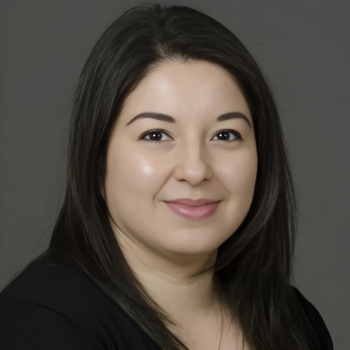
Sandra Vanegas, Ph.D.
Sandra Vanegas, Ph.D. is an Assistant Professor in the School of Social Work at Texas State University. She completed a MS in Human Development and Early Childhood Disorders from the University of Texas at Dallas, a PhD in Developmental
Psychology from Loyola University Chicago, and a postdoctoral fellowship in the Illinois Leadership Education in Neurodevelopmental and Related Disabilities (LEND) program at the University of Illinois at Chicago. Her research focuses
on identifying and addressing disparities that affect racial/ethnic minority and socioeconomically diverse children and youth with neurodevelopmental disabilities, including Autism Spectrum Disorders (ASD). Currently, Dr. Vanegas is
conducting a randomized clinical trial of a culturally-informed, parent-mediated intervention, ASD Screening and Parent Engagement (ASPEN) Intervention Program with families of young children with ASD who reside in low-resource households.
Other research projects include examining the role of diverse language experiences (i.e., bilingualism, dual language learning) on the development of children with ASD, ADHD, and Down Syndrome and disparities that affect the health
of children with intellectual and developmental disabilities and their families. The central aim of her research is to develop culturally informed educational and clinical practices that will ameliorate disparities affecting children
and families from underserved communities.
Ashlee Yates Flanagan, Ph.D., USA
Member
Read Bio
Tally Tafla, Ph.D., Brazil
Member
Read Bio
Dr. Vibian Angwenyi, Kenya
Member
Read Bio
Ifrah Abdullahi, Ph.D., Australia
Member
Read Bio
Close
Ashlee Yates Flanagan, Ph.D.
Dr. Yates Flanagan is a licensed psychologist and research psychologist at Children’s Hospital of Philadelphia’s Center for Autism Research (CAR). Dr. Yates Flanagan earned her master’s degree in counseling from New York University (NYU)
and earned her doctorate in School Psychology from Tulane University. Dr. Yates Flanagan is a research collaborator across studies at CAR, CHOP’s PolicyLab, and University of Pennsylvania’s LifeSpan Brain Institute (LiBI), specifically
utilizing her more than 10 years of qualitative expertise to lead qualitative and mixed methods studies that make meaning of cultural perspectives and experiences within autism and mothering practices, from the voice of Black caregivers.
She incorporates her clinical training in autism into her research expertise, culminating in a focused program of research.
Close
Tally Tafla, Ph.D.
Dr. Tafla is currently working as a postdoctoral researcher at University of São Paulo, with Professor Elizabeth Shephard, investigating camouflaging in Brazilian autistic adults. She has a PhD in Human Development Sciences, Master's in
Developmental Disorders, and Bachelor's in Psychology from Mackenzie Presbyterian University (UPM). She completed a six-months-PhD program at the University of Birmingham in the United Kingdom (UK). She was a member of the ANPEPP Working
Group "Autism Spectrum Disorders: Research in Health and Education", a Fellow of the Helmut Remschmidt Research Seminar (HRRS) 2023 and a member of IACAPAP (International Association for Child and Adolescent Psychiatry and Allied Professions).
She is also a member of the Brazilian Institute of Psychological Assessment (IBAP). She has interest in researching cultural differences in autism, particularly focusing on Latin American countries. .
Close

Dr. Vibian Angwenyi
Dr. Vibian Angwenyi, is an Assistant Professor at the Aga Khan University, Institute for Human Development. She supports with implementing research on early child development, with a focus on parenting interventions and childhood disabilities,
applying mixed-methods research and implementation science. She currently serves as the Nairobi-based project coordinator for NIHR funded multi-country research SPARK (Supporting African Communities to improve the resilience and mental
health of children with developmental disabilities and their caregivers in Ethiopia and Kenya). The SPARK study aims to improve early identification, referral, and linkage of children with developmental disorders, including autism,
in the community. SPARK research further seeks to evaluate the (cost) effectiveness of the WHO caregivers skills training delivered by non-specialist facilitators in diverse context through a cluster-randomised trial – see (https://www.thesparkproject.net/).
Dr. Angwenyi holds a joint-doctorate degree in Global Health from Vrije Universiteit Amsterdam (the Netherlands), Barcelona Institute for Global Health (Spain), and the Institute for Tropical Medicine (Antwerp-Belgium); a master’s
degree in public health from the London School of Hygiene and Tropical Medicine (UK); and a bachelor’s degree in Sociology from Moi University, Kenya.
Close

Ifrah Abdullahi, Ph.D.
Dr Ifrah Abdullahi is a Research Fellow at the Olga Tennison Autism Research Centre and the Victorian Autism Specific Early Learning and Care Centre, La Trobe University. She holds a PhD in Medicine from The University of Western Australia,
where her research examined the health and developmental outcomes of children from immigrant and minority backgrounds. A culturally responsive academic with strong ties to immigrant and refugee communities across Australia, Dr Abdullahi
combines expertise in clinical medicine, paediatrics, public health, and psychology to advance understanding of autism and intellectual disability in culturally and racially marginalised communities. Clinically, she is a senior epidemiologist
specialising in perinatal and paediatric health, with expertise in population-based data linkage, early diagnosis, and intervention. She is also an early-career research leader, an award-winning science communicator, and a dedicated
advocate for children from immigrant, minority, and refugee backgrounds.
Tigist Zerihun Kebede, Ph.D., Ethiopia
Member
Read Bio
Close
Tigist Zerihun Kebede, Ph.D.
Dr Tigist Zerihun Kebede is an Assistant Professor in the Department of Psychiatry and a child and adolescent psychiatrist at St. Paul's Hospital Millennium Medical College, Addis Ababa Ethiopia. She earned her Doctor of Medicine degree and Specialty certificate from Addis Ababa University and completed subspecialty training in child and adolescent psychiatry at the University of Cape Town, South Africa.
Her clinical and research interests focus on the diagnosis and intervention of autism spectrum disorder, rare genetic conditions, and other neurodevelopmental disorders. She is committed to improving care and support for individuals with these conditions and their caregivers.
She is a passionate advocate for equitable and accessible care, with a particular emphasis on serving low-income settings.
Contact Us
Find Cultural Diversity activities on Facebook, Twitter, and Instagram with the hashtag #INSAR_culturaldiversity. For questions about the committee and its activities, email culturaldiversitycommittee@autism-insar.org.
|


